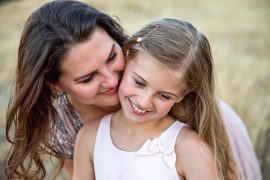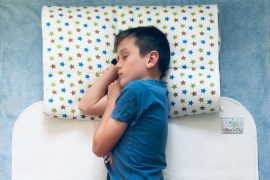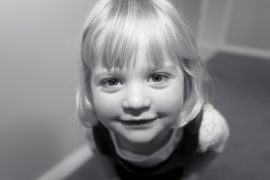The healing power of crying and emotional expression.
The understanding of the therapeutic and healing value of adult’s attending therapy, counseling and other feeling focused therapies is now widely understood and accepted in our society in general. I believe that the next evolutionary step is to apply the understanding of the value of emotional validation and expression to our children. Teachers and caregivers can also benefit from this understanding. Our children are in desperate need of this understanding becoming integrated into our society in general.
Good quality listening brings healing and resolution.
Like the adult in counselling, when a child is given loving attention and listening when they are upset, they can much more easily move through their frustrations, grief, disappointments, anger, rage and literally move on. It’s only when the emotional charge relating to difficult experiences is released, can children, or any of us, really glean the gems of insight and learning from the situation and move forward stronger and wiser.
We literally release stress hormones through our tears.
In Aletha Solter’s book Tears and Tantrums, she says: “Researchers have measured physiological changes in adults following therapy sessions in which they cried hard. The results showed lower blood pressure and body temperature, slower heart rate, and more synchronized brain-wave patterns. This state of physiological relaxation was greater following crying than following physical exercise for an equivalent period of time! Biochemical studies have discovered greater concentrations of stress hormones in emotionally induced tears than in irritant-induced tears, leading to the theory that one purpose of crying is to rid the body of excessive amounts of these hormones.”
Every response to a child is modelling. If we respond with empathy, support and acceptance, our children will grow up in a culture where peaceful conflict resolution and compassion for others is their norm.
Peaceful communication skills reduces aggression towards children.
There is still a shocking prevalence of child abuse in our society. This more empathic and supportive approach to children’s emotional expression greatly improves the parent-child bond and reduces child abuse. Parents need effective information, reassurance, and constructive ways of handling their own and their children’s emotions without resorting to violent communication or actions. The big difference is the acceptance of the child’s feelings.
Gaining more peaceful communication skills…
…to better respond to behaviour issues with their child, generally empowers parents and teachers with more confidence, clarity and empathy, effectively preventing serious problems from building in the first place. As the model of parenting without punishment becomes more widely accepted and practised, this will contribute greatly to a reduction in child abuse and to a more peaceful society in general. Every response to a child is modelling. If we respond with empathy, support and acceptance, our children will grow up in a culture where peaceful conflict resolution and compassion for others is their norm.
Supporting cries builds emotional resilience.
The reality is that children can bounce back to balance no matter what life throws at them if they are allowed and supported to heal in the most natural way, through their releasing cries. When children are discouraged from crying, they lose the freedom to cry when they need to cry, to seek support and empathy when they feel scared, hurt or insecure. Allowing children to cry, allows a child to stay more in balance more of the time. The more a child is allowed and supported to cry, the less the child will need to cry, the less stress they will carry in their nervous system and their muscles. The more a child is allowed to cry when they need to cry, the less stressed, anxious, hyperactive or withdrawn the child will be. Supporting cries fosters strength, emotional resilience and generally increased wellbeing in a child.
Genevieve Simperingham is a Psychosynthesis Counsellor, a certified Aware Parenting Instructor, parent educator, a blogger and public speaker. She’s been parenting with attachment principles from the beginning, her son is 21 and daughter 16. She runs the Peaceful Parent Institute in New Zealand and offers live and online events. Check out her website www.peacefulparent.com.











Lovely supportive words.
Thank you